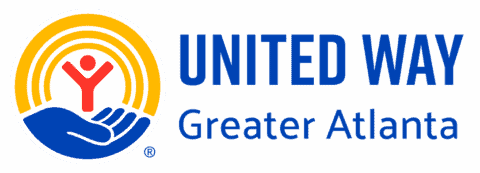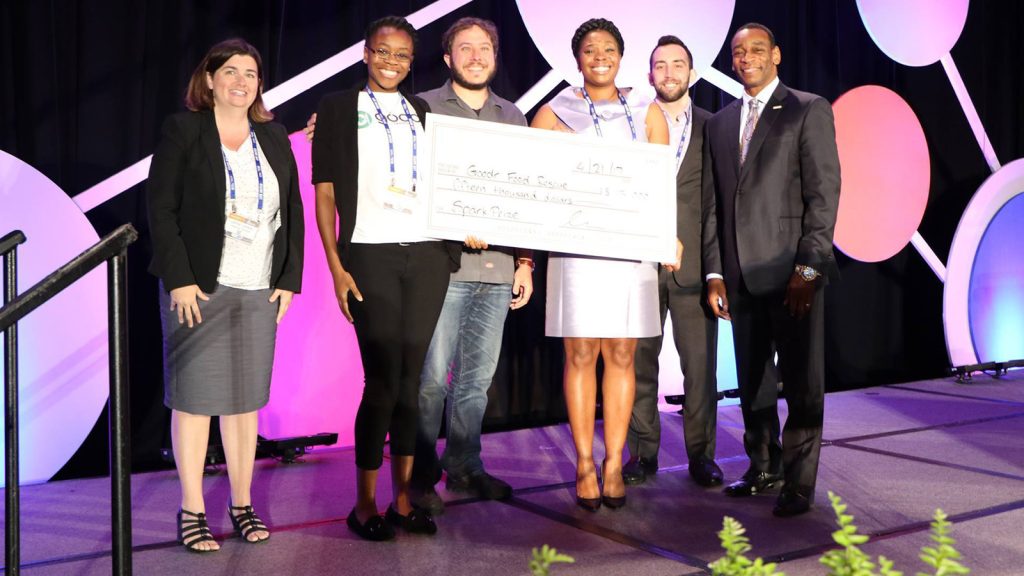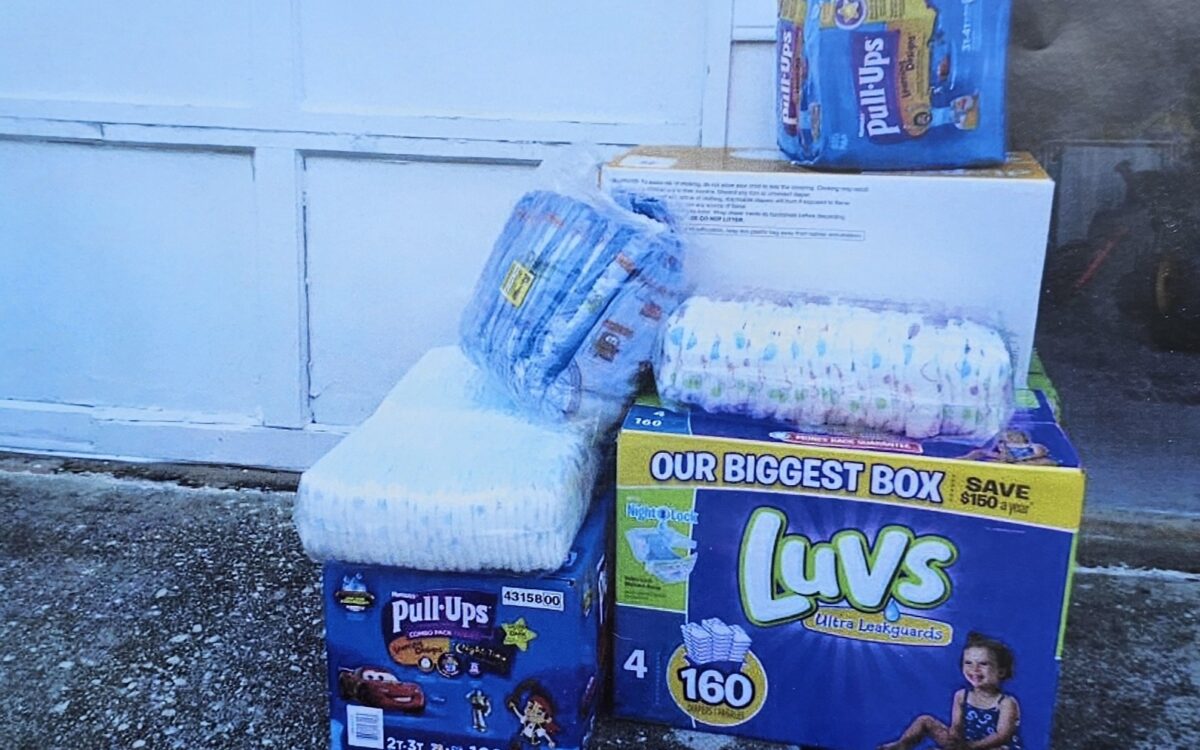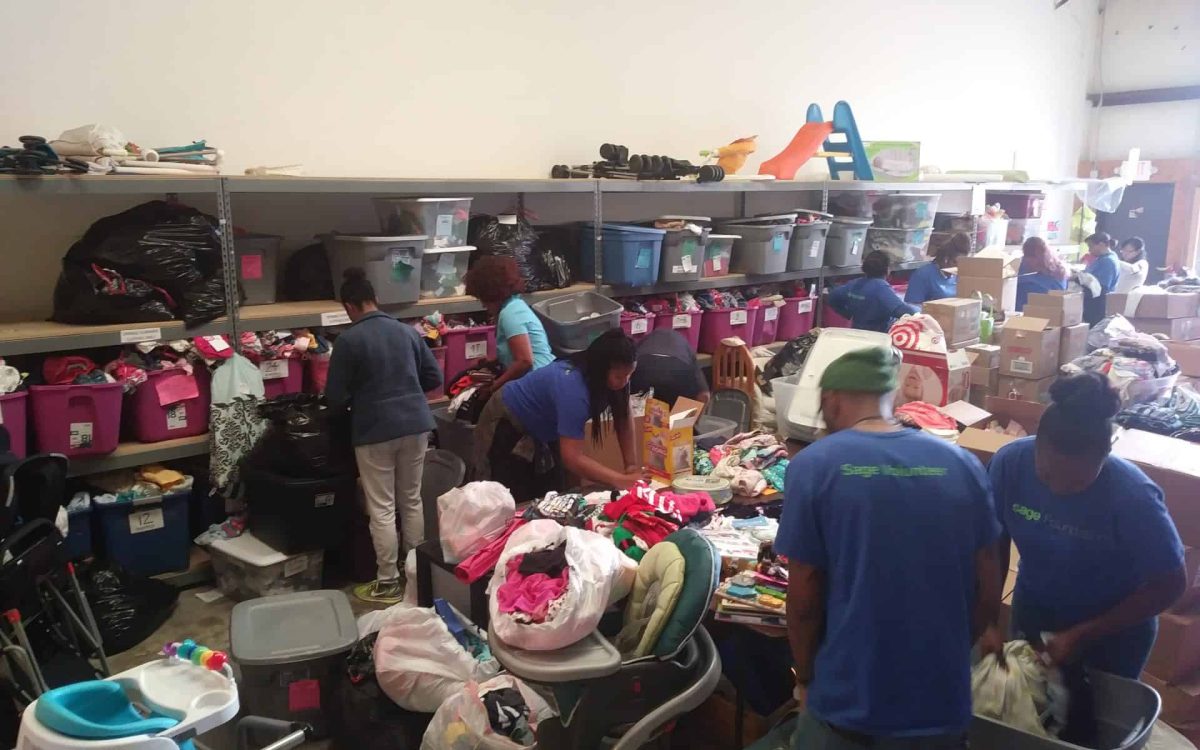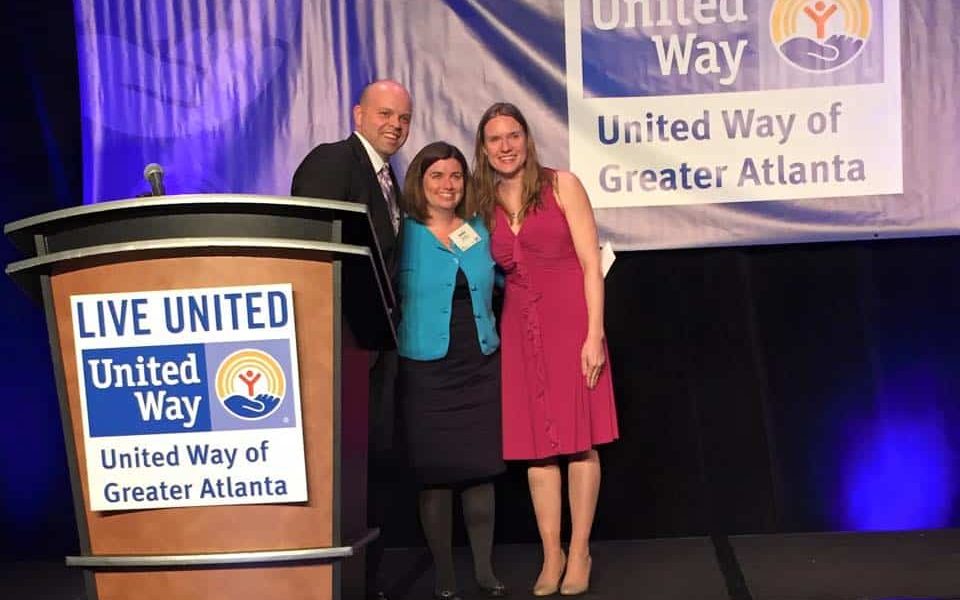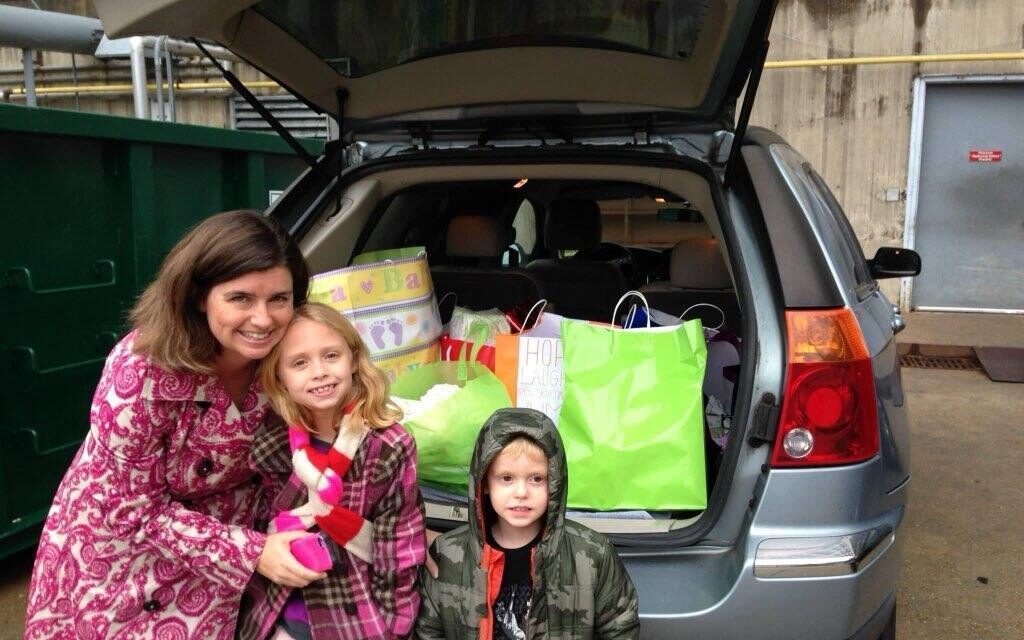The timer is ticking. You have just three minutes — three minutes to overcome any stage fright and sum up your big idea. Three minutes to convince the judges’ panel to invest in your organization, showing how it will change the game for communities across Atlanta.
This is the task given to competitors at United Way of Greater Atlanta’s SPARK Prize event, a Shark-Tank style competition for founders and nonprofit leaders seeking a chance to scale their impact.
“When we did it, I thought we didn’t have a chance because we were too new and too small…we had no money, no funding, nothing,” said United Way’s first ever SPARK Prize winner, Jamie Lackey of Helping Mamas. “I was pitching for my life.”
Rewarding the innovative
United Way launched SPARK Prize in 2015 alongside our C3 Conference, a program that drew attendees from business, nonprofit and government sectors to brainstorm ways create solutions for a thriving Greater Atlanta.
We asked small organizations or groups with innovative ideas for change to submit a video application and then take the stage in-person at the conference for a three-minute pitch followed by judge’s question and answer session.
In 2016, SPARK Prize expanded to host county-wide and region-wide pitch competitions as well, ultimately awarding $728,000 to organizations across Greater Atlanta by 2023. In the past ten years, 81 different organizations have practiced their pitches and taken the stage for the chance of transformative SPARK Prize funding.
According to data from the National Center on Charitable Statistics, around 30% of nonprofits fail in their first 10 years. For small businesses, that lifespan is even shorter with about 30% failing in just 18 months. In a challenging landscape for new organizations, SPARK Prize acts as a kickstart towards long-term stability.
Since SPARK Prize’s inception 10 years ago, we are proud to say that more than 90% of the organizations whose early growth we invested in are still going strong, actively serving their communities. More than half of them we still actively partner with, working together to build thriving communities — here are a few examples of these that are celebrating wins long after their first pitch.
Less waste, more meals
Jasmine Crowe-Houston’s hours of practicing in front of a mirror paid off when she won the $15,000 grand prize in 2017 for her social enterprise business Goodr, a logistics platform that helps collect surplus food from events and restaurants while providing meals to the community with dignity.
Just over a year later, she had raised $1 million in venture capital and credits United Way’s SPARK Prize for opening the first door to her future.
“SPARK Prize was my seed, and I didn’t take it for granted. I literally opened my bank account with that money,” Jasmine said. “I started an LLC with it, got a logo—all these start-up expenses people don’t usually think about that we have to pay for out of pocket. It launched my business.”
Outside of these operating expenses, Jasmine was able to use the SPARK Prize seed money to launch Goodr’s Neighborhood Eats, a summer program that offered kids fun activities, a hot lunch, to-go meal, and snacks. The program recently expanded to serve seniors as well.
Today, Goodr operates in 15 states, and 26 different markets all over the nation. They’ve had the opportunity to partner with Delta, Goldman Sachs, the NBA, and the Super Bowl to divert 5 million pounds of food from landfills and serve approximately 40 million meals.
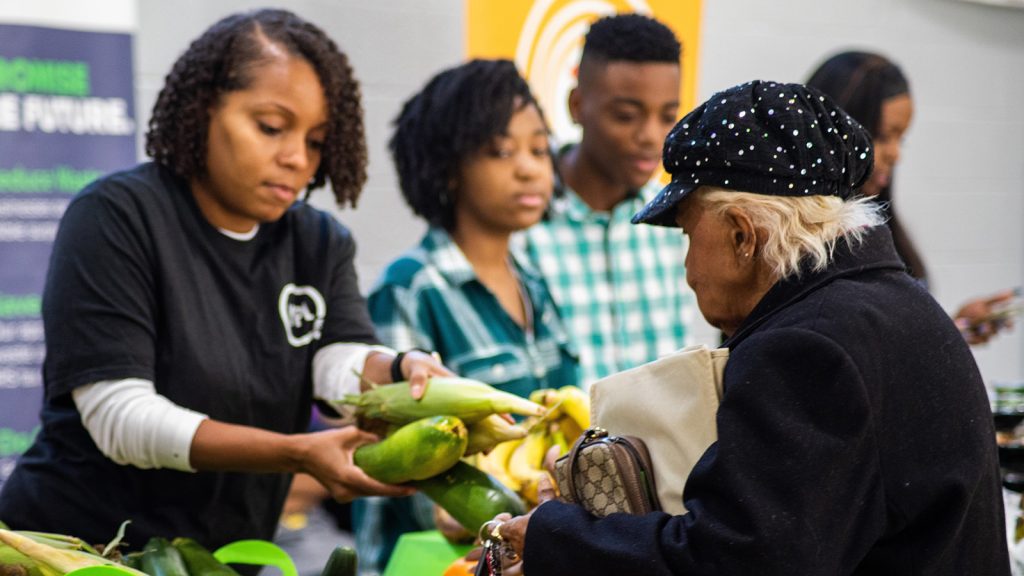
Giving Georgia’s first diaper bank the space to grow
When she first heard about SPARK Prize ten years ago, Jamie Lackey’s organization Helping Mamas was only a year old but already running out of space.
“I always said I would never start a nonprofit, because there’s so many doing great work. But there are some things that are untapped and aren’t being done. Finding the needs that can’t be met by another organization is worth the risk,” Jamie said.
She saw an untapped need in her day-to-day as a social worker — diapers and period products, items so vital for families but that weren’t covered by SNAP, WIC, or other existing services.
She started Helping Mamas to collect items and distribute them, running the organization out of her garage and a friend’s basement. At the time, she was able to provide about six to seven social services agencies with diapers and period products.
While seeking out ways to get the funds to move to a larger space, the SPARK Prize application intrigued her because it was different than traditional written grant applications she was used to navigating in her time as a social worker. While it’s not uncommon for grants today to ask for videos or other digital supplemental materials, in the early years of social media, filming a video about your organization was unheard of.
Her cousin’s husband helped her film their video application, piecing together cell phone footage, interviews, and photos of her makeshift workspace. The learning curve of editing a video and practicing her pitch paid off, and Jamie walked away with the grand prize.
With her $20,000 award, Jamie was able to move Helping Mamas into a 2,500 square foot warehouse space, allowing them to organize supplies and host volunteer groups.
“That really started us. It legitimized us and gave us place to call home,” Jamie said. “Here we are, ten years since SPARK [Prize], and we’re in 9,000 square feet and have 18 employees in three offices and two states, and we’re outgrowing the space we have.”
Today, Helping Mamas delivers baby supplies and period products to 150 nonprofit organizations, while also hosting mobile events that can see sometimes 800 to 1000 families come get supplies at a time.
The prize lies in the pitch
Recognizing that thriving small businesses improve community well-being, in this year’s iteration of the SPARK Prize competition, we invited business owners from our Building Resilient Entrepreneurs cohort to compete for funding thanks to partners at Truist, Aprio, and UPS.
Six entrepreneurs won grants for their business, but Teneka Williams walked away with the grand prize, which she plans to use to purchase what she calls the “Cadillac of mobile carts” to bring her Southwest Atlanta flower shop out into the community.
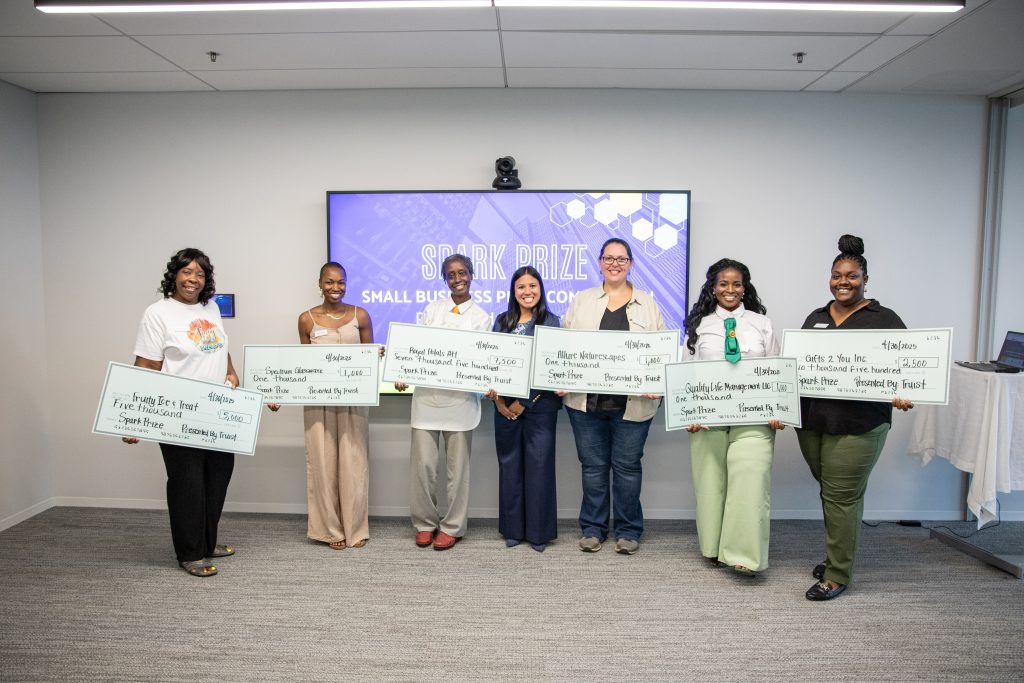
>> Read More: Building Resilient Entrepreneurs gives budding business owners the chance to grow
While we love seeing the ways SPARK Prize awards grow into community impact, for many winners, the process itself of giving that first pitch can make the biggest difference.
“Yes, the award money and recognition is always great, but being able to tell my story in three minutes is something invaluable that I will never forget,” said Jamie.
As the competition continues to evolve year to year, United Way of Greater Atlanta is committed to continuing our SPARK Prize model of investing in community heroes. Supporting innovative organizations and companies seeking to do good is in our DNA, whether it be through offering skills on how to pitch, expanding up-and-coming leaders’ networks, or directly funding their mission. We look forward to seeing what our community can do, starting with just a three-minute pitch.
Do you also want to invest in our community’s next big ideas? We’re celebrating 120 years of serving Greater Atlanta, and we’d love you to join us in continuing to fuel programs like SPARK Prize. You can help build a future of community-driven change by donating today.
